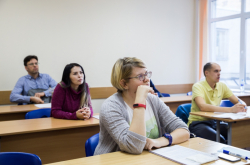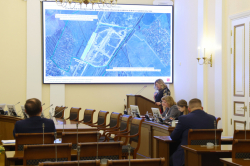The Government of St. Petersburg annually holds a competition for young lecturers from the city’s universities. Any PhD student or researcher who is teaching a course at a university and is under 35 years old is eligible to participate. The competition also has a special nomination for PhD holders under 40.
This year, the competition received a little over 230 applications from 31 St. Petersburg universities. The expert panel chose 70 winners, who were awarded in the beginning of December at a ceremony held in a conference hall of Peter the Great St. Petersburg Polytechnic University.
“It is a hallmark competition,” explained Andrey Maksmov, the Chair of the Science and Higher Education Committee, as he addressed the winners. “I am proud to be speaking in front of you all today, because you are the people who have chosen their paths, have found their favorite job and their scientific passions. It is what you live for, and I am pleased to know that the city has the opportunity to recognize your talent and knowledge which you share with your students.”
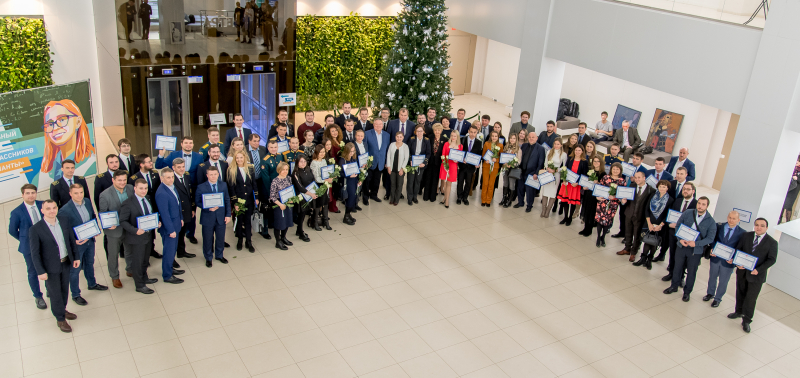
Apart from certificates honoring the winners, the PhD students were awarded 30,000 rubles, while the PhD candidates received 50,000 rubles and those with a PhD got 70,000 rubles. In 2019, ITMO University representatives received two awards in the nomination for lecturers of engineering sciences and one for lecturers in social and economic sciences. Each of the winners has their own story of becoming a lecturer and a specific approach to teaching, which they kindly shared with ITMO.NEWS after the ceremony.
Anastasia Pavlova, a senior lecturer at the Faculty of Food Biotechnologies and Engineering, a PhD in Economics
I grew up in a family of teachers: my mother is a physics teacher and my grandmother taught at primary school. It was clear to me that I had to enter a pedagogical university, but my parents were against it. That was how I came into industrial ecology, a new field that was only emerging at the time. I fully delved into environmental studies and decided to continue with a PhD after getting my environmental engineer degree. Teaching was a prerequisite on any PhD program, so I became a lecturer ten years ago when I was still a PhD student.
For the last ten years I have been teaching and working in the industry, and I consider it to be my advantage. I can see how excited my students are to learn about the way a certain process is applied in practice. A close connection to businesses and industry helps me organize practical classes in various companies to demonstrate my students different ways to integrate environmental management strategies.
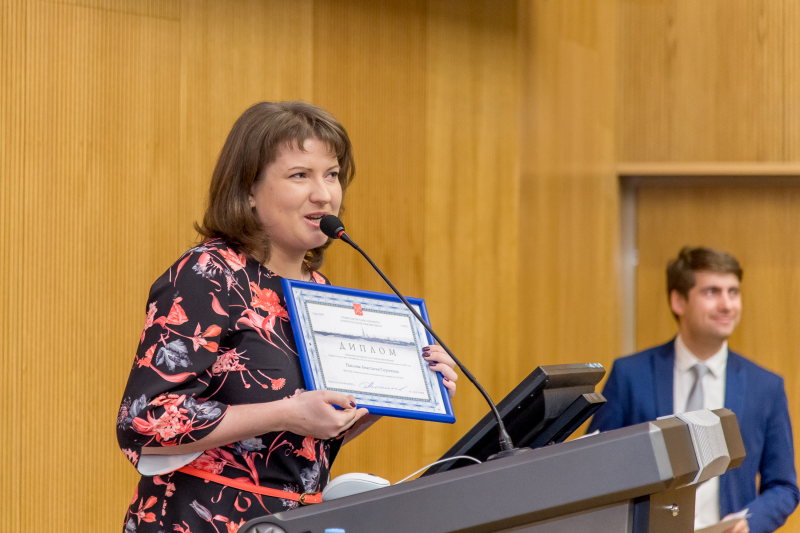
Last year I designed and started teaching a course called “Corporate Environmental Management” for international students. It was a challenge for me! I had to create study materials, the many lectures and presentations in English. The EMI (English as a Medium of Instruction) course that is available at ITMO was a great help to me that year. We covered the cultural experiences of international students, as well as state-of-the-art approaches and methods in teaching; it was a great opportunity to improve and practice both my English language skills and my presentation skills. It is with this “Corporate Environmental Management” course that I entered the Government of St. Petersburg Award Competition.
I think that this achievement will inspire me to hone my professional skills and lead me to create new educational courses, giving me confidence to teach international students.
I am happy to have won! I want to dedicate this award to two people who helped me become the lecturer that I am today: to my mother, Natalia Vasilieva, who handed her passion for teaching down to me, and to my “scientific mother”, Olga Sergienko, (Associate Professor at the Faculty of Food Biotechnologies and Engineering — Ed.) who has been supporting me throughout my teaching career.
Alexander Vasiliev, Associate Professor at the Faculty of Applied Optics, a PhD in engineering
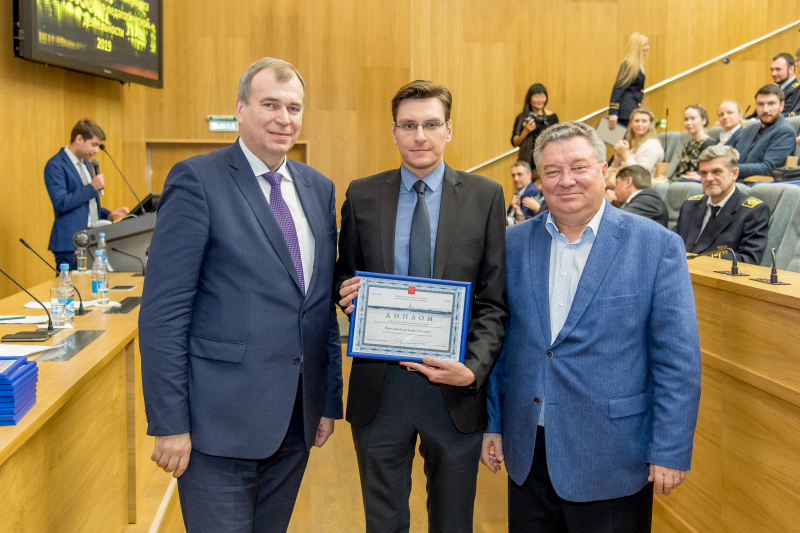
I started working at ITMO University before my graduation in 2012. I’ve taught numerous engineering disciplines and this time I entered the competition with the working program for the “Microcontroller Programming” course. During these classes I explain what microcontrollers are and how you can program them.
It is the second time that this course has helped me win; in 2017, I sent in a resource book and this year it was a working program, a complete course, including a detailed description of the study process and the evaluation method.
First of all, I try to make my classes practice-oriented, so that my students not only receive theoretical information but also get an understanding of how to work with the equipment; they get a chance to work with hardware and program it, seeing how it functions. I also include projects in my courses, which students choose at the start of the semester to design more or less complete devices capable of tackling certain tasks by the end of it. For instance, one of my students worked on a project that controlled the color of the products released. One other student created a photometer.
I get inspiration from my former professors. One of them had a very interesting approach that I try to apply. It was crucial for that professor to have a personal connection to his students, to view them as someone who you actively interact with, someone you try to understand and adapt to, finding a project that the student would like and be interested in.
The students today are very different from my day. They have a different approach to studies: they are mostly interested in solving specific problems instead of simply acquiring knowledge. This trend is yet another source of motivation for me to personally interact with each student individually.
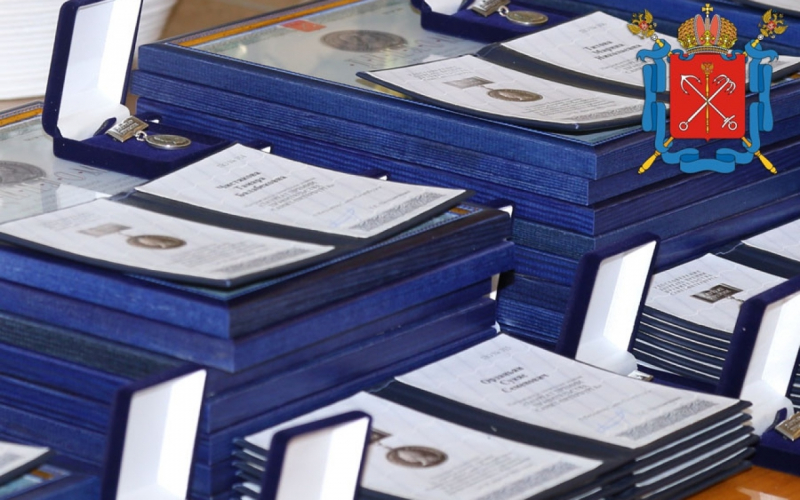
Ekaterina Sokolova, a senior lecturer at the Faculty of Cryogenic Engineering
I graduated from St. Petersburg State University of Refrigeration and Food Processing Technologies in 2010, then got into a PhD program and started working as an engineer. My university merged with ITMO in 2013, and since then I have been teaching at ITMO University. I have several courses, including “Vacuum Technologies in Cryogenic Devices” for Master’s students, for which I received the award.The other courses I teach are “The Basics of Cryogenic Systems Use”, “Vacuum Devices” and “Prospects of Cryogenic Systems Application”, in which I am responsible for practical classes.
At first we taught the award-winning course together with Professor Vladislav Ivanov. Two years ago he retired, handing the course down to me. Now I am in charge of both lectures and practical classes.
Vacuum technologies are widely applied in many fields, not only in cryogenic devices. That is why the first lecture offers an overview of all the possible applications of vacuum technologies. These include such highly specific systems as space simulators with their large scale. Students are always curious to know how and when something was created, and here we can start way back: the Soviet Union had already faced a number of problems with the space launch. For instance, when Alexei Leonov, an eminent cosmonaut, took a spacewalk and his suit swelled up, an incident portrayed in Spacewalker, a recent Russian movie. A space simulator allows researchers to test for such issues while still on the ground to avoid them in space. Such stories spark up my students’ interest, easing them into the course.
I entered the competition with lecture notes, because I believe that to win you have to apply with something original, with your personal presentation of the course. Study guides are mostly written by a group of lecturers while course programs often fail to demonstrate what the courses actually contain. Lecture notes in that sense are more graphic, they fully reflect the contents of the discipline. It might be that this entry, lecture notes, has some advantages over other applications. It’s important to underline that my lecture notes are actually slides, so I was able to provide them with different pictures and schemes, make it bright and colorful.
It is my first award and, naturally, it boosted my confidence. It is clear to me that I am going to take part in other similar competitions, and I am sure to enter this contest once again next year.



